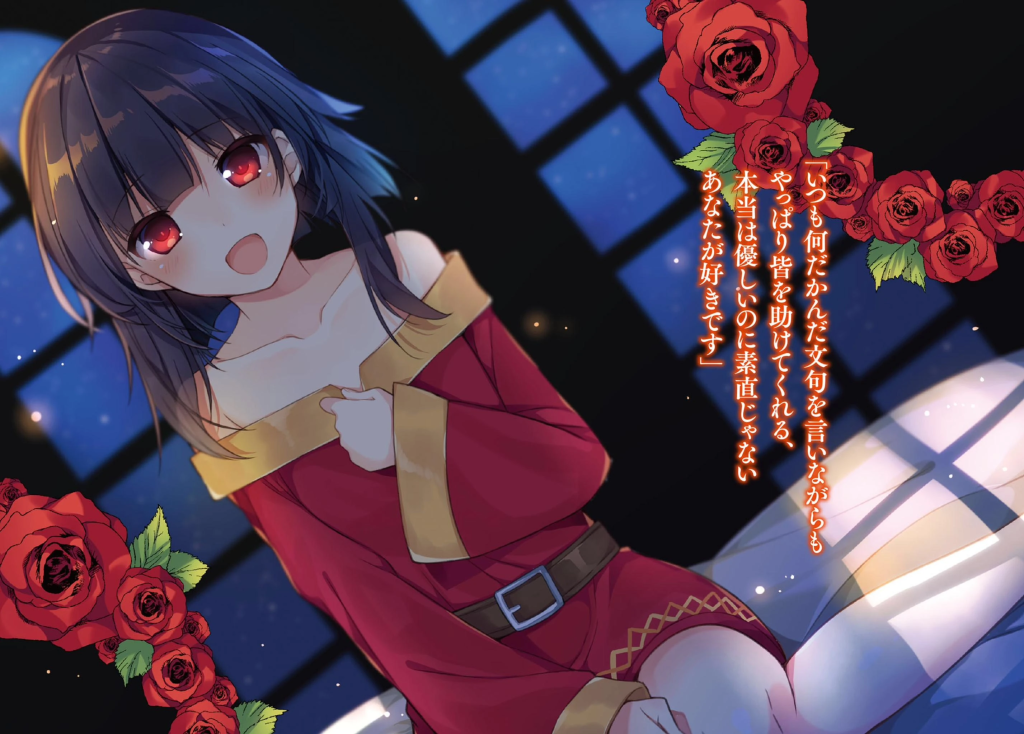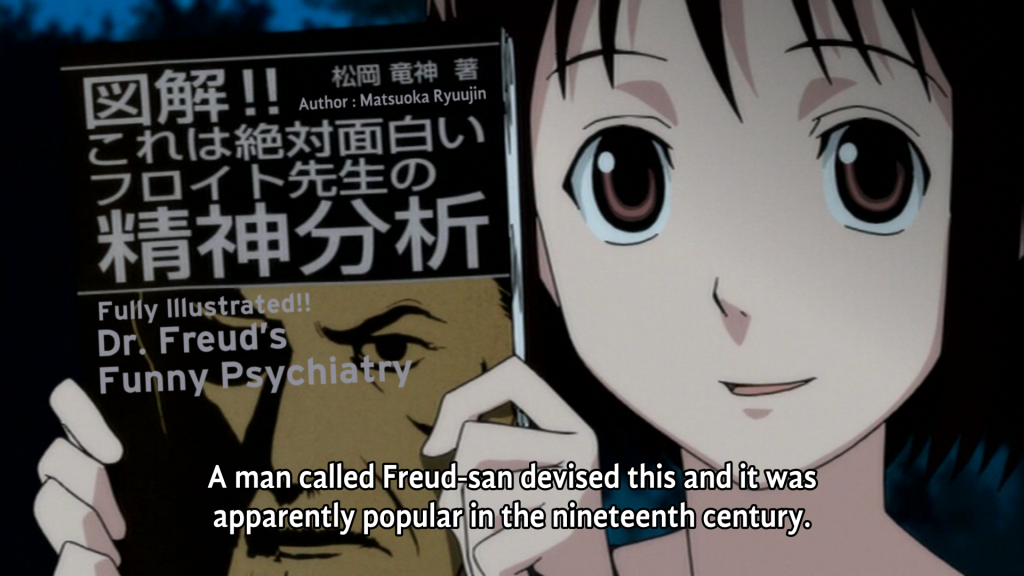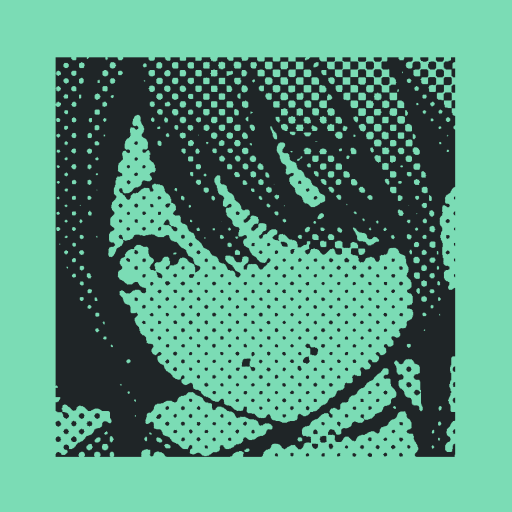another tired personal anecdote about Welcome to the NHK
An endless summer, a never-ending vacation from reality. A room littered with neglected quotidian—scattered debris, unopened mail, and gravure Blu-rays. The stench of dissonant hubris and sloth. Soft rays of sunlight filtered through the linen curtains, a stark reminder of the world outside of these four walls—the happy sky, the wild blue yonder.
It’s merriment taunts the very blood that flows through my veins. The natural world mocks me. Passersby chat loudly on the adjacent pathways. Their words revolve around an undeniable topic—the insectile man subsisting in that cramped 15-mat apartment. Subcompact cars reign their terrors periodically, waking me from my slumber and breaking my concentration. The mere sight of youth burns my retinas.
Society is at odds with a single soul. This is their fault; after all, the world has shaped me, and I’m not impervious to its sculpting. The reason I’m here. The reason I can’t leave. The reason I cannot move. An infallible foundation was swept under the rug in a grand conspiracy, and I am the target.
There’s no use in thinking about pointless things.
Eyes close, dreams unfold.
I had another nightmare.
This is not enough.
I remained in my room, laying in the same spot where I slept and ate. I don’t want to do anything. I don’t want to talk to anyone. I don’t even have the will to pick up the phone. Am I doomed to decompose quietly and live like the dead? How much more can I do? The luxury of delusions eludes me; even worse, there is no Misaki Nakahara at my doorstep.

Believe it or not, I’m incredibly sentimental. I feel a sense of nostalgia from seeing old Facebook posts I made in middle school. It was one of those “otaku confession” posts where I poured my heart out, sharing information and lore about a character and explaining why I loved that particular aspect of them. Something akin to those imageposting /jp/ threads or that full page spread from Hyakkano. Typically, I keep my sentimental side to myself. Creating meaningful memories often happens in my own world, excluding others. Some of my fondest memories are of moments in pure silence, where I could sit with my thoughts and revel in maddening concepts. Or how I spent my first ever paycheck on an IDOLM@STER figurine, which will forever be a source of pride.
That bit of experimenting I did with my last post was an event flag for a shift in my life. Soon after I finished that video, I spent a day reading a book before I embarked past the common route. I wanted something that resonated with me, something less pointed than a Fyodor Dostoevsky novel (you aren’t reading much in a single day) or Invaders of the Rokujouma, because that just happened to be the last thing I touched before I left. What better piece of media for that than Welcome to the NHK! by Tatsuhiko Takimoto?

Welcome to the NHK is a story about a hopeless man named Tatsuhiro Satou who is desperately trying to break out of his bad habits and regain his status as a member of society. Every moment of the book is about his feeble attempts at finding happiness, be it through drugs or indulging in delusions. He meets a person who kicks off his path to “progress.” Little does he know, she’s got a ton of issues herself.
The novel stands as the first iteration of the world’s premier hikikomori story, distinguishing itself with an entirely black perspective on the matter. The main focus of the story is Satou and his Hachiman-esque inner monologues.
“Because of our broken instincts, we are in pain. We continue to be in pain because our instincts have been twisted by reason. So, what are we supposed to do? Should we abandon knowledge? Throw away reason? In any event, that wouldn’t be possible. For better or worse, we ate the fruit of knowledge long, long ago.”
The novel is absolutely my preferred iteration due to its pitch black depiction of an untouchable. It approaches the concept with cynicism and understanding, which is a nice change of pace from the typical stories told within this sphere. It revels in knowing how hard it is to break free from the walls you’ve formed and how difficult it is to fully accept others.
The anime and manga act as an expansion of the source material, with some new characters and far more screen time with characters besides Satou and Yamazaki. The suicide pact, the whole ordeal with Hitomi, his mother, the MMO, and even the successful hikikomori were all additions to the original story. The tone of the series changes quite drastically through the adaptations, which makes for a far lighter story. A good example of this would be some of the scenes where his home appliances speak to him about the Nihon Hikikomori Kyōkai or the incredibly exaggerated expressions Satou tends to have. Less like a journal from an unfortunate soul and more like a dark comedy with occasional “real” moments.
Depending on how you want to interpret the series, NHK is a story about being a NEET and indulging in self-pity and simple pleasures. Satou tries to change multiple times, but over the course of a year, he only makes an incredibly small amount of progress. Change nonetheless, but an entire world of pain for it. Forward and back constantly. It’s almost like the world is trying to keep him holed up in his apartment.
You can imagine all of the typical spiel that comes with a series like this. Friendship is magic! Overcome depression with love! You need connections! Wake up, get up, and go out there! Isn’t that pretty lame? Trust me, I love a good story about overcoming the crosses you bear. But aside from the ideals that Tatsuhiko Takimoto desperately tried to convince himself by writing his resolve through Satou, I simply questioned, Why is Satou smoking in Yamazaki’s room? Doesn’t that diminish the value of his precious figurines?

In the current state of the world, it’s impossible to maintain the hikikomori lifestyle. Have you seen the price of beef jerky? The only true path to salvation is to live a healthy life! As a true patrician, the only advice I need comes from vaguely anime related media! Give me more romantic manga that preaches the gospel of love! Give me more anime about working out in proper form! Let’s reform the otaku into sensible people with eccentric hobbies! Contribute to society, reproduce, and play a meaningful role! Let’s smooth out the edges of the otaku! Out with the untouchable persona and in with conformity. And hey, wouldn’t Yamazaki be a far more interesting character if he ended up with Nanako?
Life’s meta-narrative, with all its actors, seems to be relentlessly devoted to preaching progress and change. In the recent past, I’ve spent time with people I’ve never met. I find myself talking to complete strangers as a pastime when I am not immersed in consuming various forms of media.
When I converse, I tend to go straight to the point and ask whatever question I think would spark the most discussion, as circumstance would allow. An easy one that anyone can answer is, “Why are you here?.”
“I do things because I want to help people.”
“I’m here to provide for my family.”
“I’m here to fulfill my purpose and serve a higher power.”
“I want to be successful.”
Suddenly, their faces merge into a single, familiar creature. The answers are clear to me. The infallible foundations of man are family, love, and wealth.
It’s exactly what you want to hear—what you need to hear, as God intended. These are the types of answers one would expect from a well adjusted adult. Thus, I face their conviction with a simple nod. There is no room to question why; the answers are strong enough to shoot down any attempts at analysis. It’s perfect. What is, just is.
In any proper conversation, there is an inevitable intrigue about the other party.
“So, Eli, why are you here?”
I have a multitude of responses, which I choose depending on whatever mood I am in. “I flip a coin” is a personal favorite, but I also delve into a narrative about the love of my life, only to unveil that my sweet darling isn’t a flesh-and-blood human but a character from a phone game. It tends to get a few chuckles or sighs of embarrassment, but aside from my penchant for silliness, I wonder…
Why am I here? I’m predisposed to reject the very notion of raison d’être, but in spite of that, I find myself pondering it in moments of fatuity. I’m only human, so there are many things I’d like to do and achieve, things not too dissimilar from my colleagues. We aren’t all that different. I want to get “better” and become just like ShinyP. It should be enough, right? The little angel on my right shoulder thinks so. Is it fine to move forward like this? The change, the growth—everything is built upon a foundation of sand. I’m afraid, dear colleague, I don’t have an authentic answer. It seems to me that I am still shackled by the ideas of greatness from the world around me. Naturally, all of it is grounded in rationality and reason, akin to the perfect resolve of the familiar creature. I can’t merely reject them. I need to reject everything they stand for. I want to get worse.

NHK allows me to indulge in behaviors that my frontal lobe would consider immoral. That’s precisely why it became my pointlessly sentimental book of choice. The “real” messages of the series do not elude me. I intentionally read it with a sly grin on my face, losing myself in the intrusive thoughts one must never give into. In a twisted sense, NHK is my dose of Chuunibyou. To live and believe the things I want to believe, even if it’s to the detriment of everything surrounding me, including myself.
I tend to group this novel in the same subgenre of “problematic books” alongside books like Notes from the Underground and No Longer Human. Books that present characters with tormented souls—pathetic and irrational, yet wickedly sentimental. They act as examples you shouldn’t follow. Stories you’d navigate with caution. You are meant to view the characters as lessons on how not to live your life. This I know to be true, and yet I can’t help but smile, knowing that I am not alone in sin. I refuse to forget about the devil on my right shoulder, he’s just as important as any other aspect. I can accept the true message as well as the woefully distorted one; after all, I value knowing both sides of everything. Satou and Yamazaki are literally me, albeit intermittently.
I live in the real world. I live on my own. I am a fully capable adult with a reasonable career. I have healthy eating habits and keep my mind and body active through literature and exercise. I sleep at a good time. I don’t drink or smoke. I dress and take care of my appearance. I can gaze into the dead stars above with the full conviction that I have tomorrow. I larp occasionally as a loner when I’m likely one of the loudest people in any given room. (Although everything I do could be classified as an incredibly elaborate larp.) I’m not a hikikomori, and I don’t think I ever could be one.
And yet, NHK is far more palatable than any self-help book could ever be.
The lives of Satou and Yamazaki are almost enviable. A life of true escapism from all of the woes and worries one could have. They allow me to look at my reflection in my coffee and think for just a moment, “What’s the point?” as I shut myself away from this world.
Obviously, NHK doesn’t present a sustainable way to live, and I think any reasonable person would agree. Most people wouldn’t want to live like them; the author himself (and, by extension, Satou) wrote this series specifically to escape that lifestyle.
We subject ourselves to these forms of control out of pure necessity; whether or not they’re good for us is a moot inquiry. My values, or lack thereof, may not align with this system, but I’m just another player, and you are too.
BGM: 電音部 – メタモルフォシス


Leave a Reply